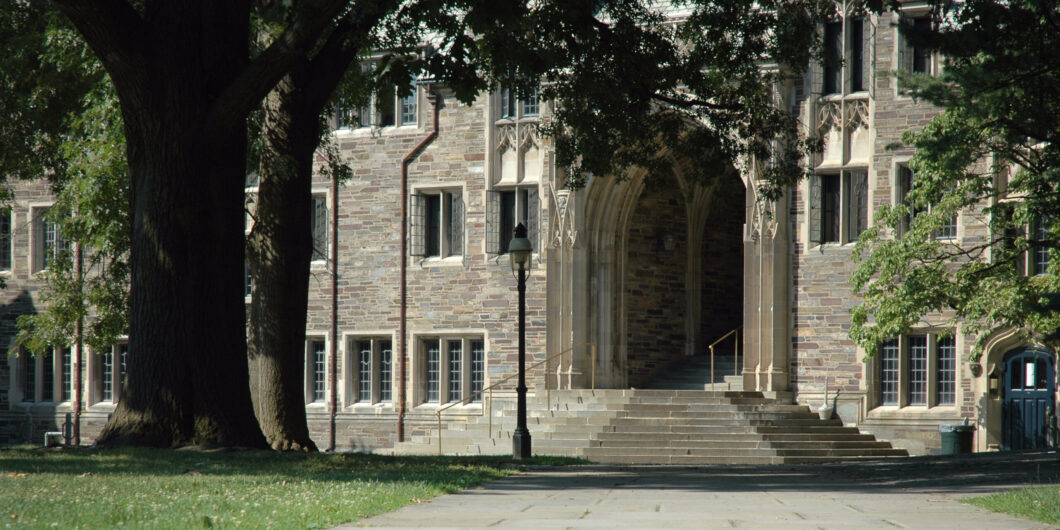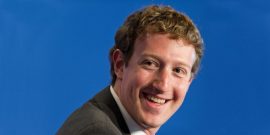Current interpretations of the First Amendment may sometimes serve as a bulwark for cancel culture, not a remedy.
A Free Speech Test for the Ivy League
When presidents from our top-ranked universities averred before a Congressional committee that they could not crack down on anti-Israel demonstrations last fall, their explanations fell flat. They claimed they were dedicated to the principles of free speech, academic freedom, and the pursuit of knowledge no matter how uncomfortable. Even calls for genocide could be protected depending on the context. That’s what robust free speech norms require. Our universities are meant to embrace robust free speech in pursuit of their fundamental mission to build and promulgate knowledge.
Two of the three presidents who made those claims have since resigned. That was likely due at least in part to the rank and obvious hypocrisy in their statements. American universities, including those represented at the hearing, had been the centers of numerous free-speech scandals. Students had been dragged to kangaroo courts for harassment on the thinnest reeds. Professors were suspended or fired for taking unpopular positions. Heckler’s vetoes were ubiquitous, as schools would refuse to punish students, faculty, and outside agitators who disrupted events even in violation of stated free-speech policies.
Now that Jews at Columbia were being told to “go back to Poland” and Hezbollah flags flew at Princeton, school presidents rushed to say that this time they really meant it. From now on, free speech would reign in place of opaque speech codes and disruptive protests.
For the past year or so, universities have applied their free-speech standards mostly to continued anti-Israel demonstrations. Columbia has been at the forefront—at least it was for months until Harvard upstaged it—repeatedly failing to expel students who have taken over buildings, damaged property, and engaged in other actions that have some expressive element to them. The Trump administration has targeted Columbia for its inability to distinguish between free speech and destructive conduct, freezing Columbia’s funding and threatening further revocations if the school does not punish rulebreakers and adjust its rules to prevent further disruptions.
Princeton President Christopher Eisgruber has lately positioned himself as a champion of free speech and defender of Columbia’s freedom from government overreach. He also has the distinction of being the first university president in this new era to deal with a good old-fashioned guest-speaker shout-down, the kind that used to be ubiquitous on campus but has taken a backseat to demonstrations as the flashpoint for campus free-speech debates. After agitators on his campus disrupted an event with former Israeli Prime Minister Naftali Bennett, Eisgruber will face the stark choice: Put his money where his mouth is and expel all students involved in the debacle, or show the world that the recent turn towards principled free-speech-at-all-costs was nothing but a charade.
Eisgruber has been nothing short of outspoken in favor of a refined view of campus free speech. In The Atlantic, he excoriated the Trump administration for pulling federal strings that threatened academic freedom, which serves “the unfettered pursuit of knowledge.”
“The principles of that freedom do not give faculty or students the right to disrupt university operations or violate campus rules,” Eisgruber correctly clarified. But crackdowns on universities that tolerate such disruptions could still be chilling if they overreached. “Every citizen and officeholder who cares about the strength of our country must also care about free speech, self-governing thought, and the untrammeled quest for knowledge.”
It’s back to the future on campus free speech. But this time, so much more hinges on what Princeton does next.
In an opinion piece for Princeton’s main campus publication, Eisgruber elaborated on the limits of expression, including speech used to disrupt others. “Princeton’s free speech policy … explicitly recognizes that ‘the University may reasonably regulate the time, place, and manner of expression to ensure that it does not disrupt the ordinary activities of the University.’”
That policy also “prohibit[s] tactics, such as encampments or the occupation of buildings, that interfere with the scholarly and educational mission of the University,” because “dialogue, debate, and deliberation depend upon maintaining a campus that is free from intimidation, obstruction, risks to physical safety, or other impediments.”
This is correct as a statement of principles. The pursuit of knowledge is not served by licensing every person to speak in any manner at all times. That is most obvious when it comes to the heckler’s veto. Those who do not understand the principles of free speech regularly argue that demonstrators have the right to disturb an event, or shout a speaker down, because doing so is itself speech. Eisgruber has rightly rejected that facile understanding of free speech, which is not reflected in First Amendment law and would be inherently unworkable. And as Princeton’s “Statement on Freedom of Expression” notes, all students are expected to understand that “they may not obstruct or otherwise interfere with the freedom of others to express views they reject or even loathe.” Princeton “has a solemn responsibility not only to promote a lively and fearless freedom of debate and deliberation, but also to protect that freedom when others attempt to restrict it.”
How solemn? We will soon see. Former Prime Minister Bennett was greeted with “a group of individuals,” according to an email sent by Rabbi Gil Steinlauf, the executive director of Princeton’s Center for Jewish Life, who “stood up and began shouting … interrupting the conversation.” They were “removed by free expression facilitators” after a few minutes before another person disrupted the event, was warned repeatedly (though it’s not clear why any warnings were necessary at this point), and was himself removed.
Then, “the fire alarm went off and the microphones were silenced.”
“There was no fire,” according to Rabbi Steinlauf. “Security personnel and university officials were confident that the alarm was deliberately pulled to disrupt or end the event.”
And with that, it’s back to the future on campus free speech. But this time, so much more hinges on what Princeton does next. Universities failed to investigate and punish these dime-a-dozen instances before their supposed conversion to free-speech principles. Yet we have been told that something has changed for the better. This is the perfect test case.
Princeton has announced that it will investigate this serious breach of basic free-expression rules. Videos from the event make it clear enough who had to be escorted out after trying to shout Bennett down. And since the main campus anti-Israel group took to social media to claim credit for the disruption, its leadership should also be in the administration’s crosshairs. The question now is not whether Princeton is capable of identifying a violation of its rules—it is whether it is prepared to enforce them. Nearly all universities have been reluctant to back their words up with drastic action, issuing warning after warning instead, all while continuing to populate campus with the left-wing radicals who engage in this behavior year after year. Several weeks have passed since the Bennett debacle, and all indications point to more of the same—more feckless warnings and more hypocrisy.
If Princeton fails to expel any students involved, including the anti-Israel group’s leadership—and soon—it will reveal how hollow its supposed change of heart has been. It will invite even more government scrutiny, and deservedly so. Americans are already skeptical that these universities are committed to principle, rather than a combination of money and the production of progressive ideology. And taxpayers may feel more confident in their belief that no more money should flow to well-endowed factories for left-wing activism.
This time, we have been assured that universities are dedicated to robust free speech in service of the pursuit of knowledge, which university leadership maintains is sacrosanct. A wrong move from Princeton will show that the better term for it would be sanctimonious.


